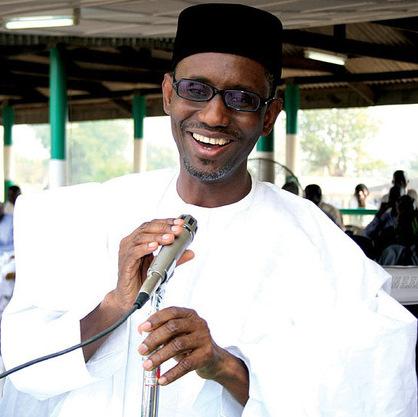Misreading the War Against Al-Shabaab – By Abdihakim Ainte

 The news from Nairobi over the last few days has been appalling. But, given the frequency of Al Shabaab’s grenade-throwing over the past 18 months, the attack shouldn’t have come as much of a surprise to watchers of the region. Yet, despite the magnitude of the death toll, the Kenyan government has shown a remarkable sangfroid, both in managing the crisis and taming the potential for ethnic flare-ups.
The news from Nairobi over the last few days has been appalling. But, given the frequency of Al Shabaab’s grenade-throwing over the past 18 months, the attack shouldn’t have come as much of a surprise to watchers of the region. Yet, despite the magnitude of the death toll, the Kenyan government has shown a remarkable sangfroid, both in managing the crisis and taming the potential for ethnic flare-ups.
While investigations are still in progress, analysts and experts have choreographed the attack into different interpretations, but it seems to me the focus has been misplaced.
The Kenyan invasion of the southern Somali city of Kismayo only broke the back of the Al-Shabaab and, more importantly, created an opportunity for the group to reorganize and rebrand its operational tactics. Just a few days before the attack, I wrote a piece in which I argued that Al-Shabaab is now far more lethal than it has ever been before.
To showcase its strength, over the last six months, Al-Shabaab has carried out multiple attacks; half of them targeted at heavily guarded government institutions in Somalia – the UN complex, airports and embassies.
As the blame game starts, it should be understood that the biggest failure of the Kenyan government wasn’t whether its security fraternity or Intel agencies were prepared for the attack. They were. However, the overwhelming majority of terrorist experts agreed before the siege began that, at some point, a terrorist attack was more or less inescapable.
The first misreading lay in the thinking that toppling Al-Shabaab from Kismayo and subsequently declaring victory would wipe it from the terrorist map. On the contrary, it opened a Pandora’s Box in which Al-Shabaab retreated back into society and re-established itself as a guerrilla force able to strike back.
The attack at Westgate is, if anything, an indication of their new asymmetric tactics – the hallmark of Al-Shabaab 2.0. Booting Al-Shabaab out of Kismayo was a just and rational act, but the idea that it is now on the back foot is misplaced. Also, the notion that insurgency can be defeated by force displays a fundamental misreading of the enemy’s strength.
The second misreading is Kenya’s preoccupation with Kismayo. When Ethiopian troops broke the power of the Islamist Courts Union in 2007, they cautiously avoided any preoccupation with any one region, and expanded their operations across Mogadishu. Kenyan troops seem to have underestimated the adaptability and vitality of the organization’s threat. Al-Shabaab, like Al-Qaeda, is now a diffuse organization that has clandestine cells and sympathizers across the region. It still controls large swathes of provinces in much of the south and central part of the country. Despite its recent structural crisis, and loss of key strongholds, it is now morphed into monolithic organization that has a coherent ideology and determination to apply itself to a global jihadist ideology.
Although Kismayo was Shabaab’s largest revenue-making source, it was not, however, the greatest income generating means available to them. Conversely, the largesse of its budget comes from its core donor sympathizers and a few charitable individuals who believe in their cause.
Short on specifics, operation Linda Nchi has fed the perception that Kenya is pursuing a buffer zone through proxies, allowing Al-Shabaab a rallying cause by painting the KDF as intruders from afar. In addition, relations between Nairobi and Mogadishu over the KDF’s role in Kismayo have been hostile, preventing a joint and genuine cooperation against al-Shabaab. While Nairobi and Mogadishu have generally showed a common interest in the war against Al-Shabaab, they have not come to a clear term of reference on how to combat terrorism.
Worse yet, Somali legislators tabled a motion demanding Kenyan troops pull out from Kismayo, fueling already rancorous relations. Furthermore, the operation of Kenyan maritime assets is a source of great concern for the Somali government, which has publicly called for international stakeholders to support its own navy.
As of now, relations between Kenya and Somalia can best be summarized as that of “˜frenemies’.
Al-Shabaab uses the stalemate as an organizing factor for its audiences, arguing that the two governments are squabbling amongst themselves at the expense of you – the people. Needless to say, Al-Shabaab is widely despised in Somalia but, after all, it was born out of foreign troops stumbling into the country, which helped them to reinforce their narrative of “˜foreign imperialism’.
There is a clear connection between Kenya’s post-Kismayo interventions, the Westgate attack, and the political standoff between Kenya and Somalia.
That said, both countries have historical relations that date way back and share key concerns. To avert future attacks, both need to understand that Al-Shabaab’s threat cannot be managed without their mutual cooperation. And the international community at large needs to encourage and support a collaborative discourse between Nairobi and Mogadishu.
Abdihakim Ainte is political analyst and he tweets at @Abdikhakim




